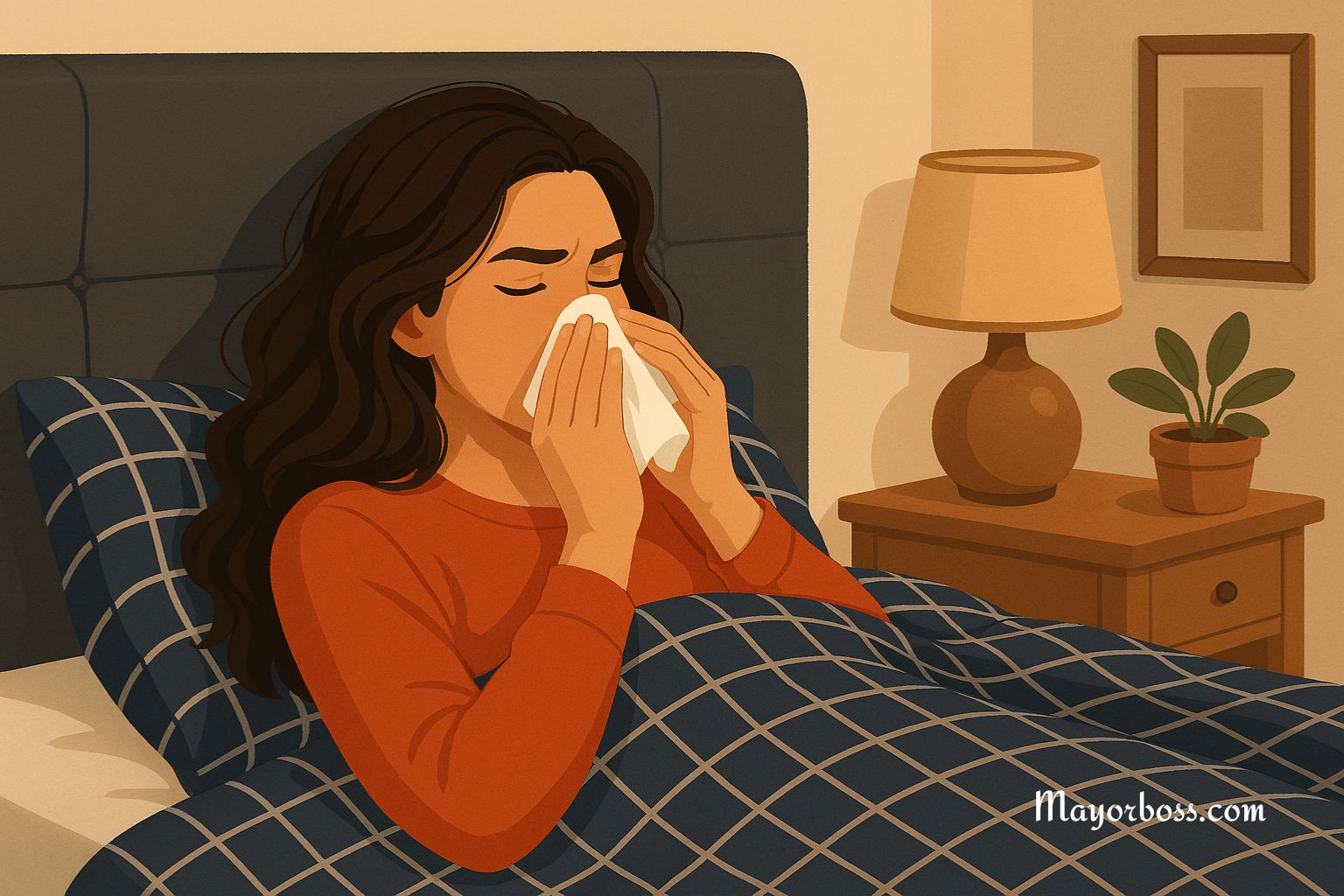Why Your Allergies Are Worse in the Morning
Many people with allergies wake up sneezing, congested, with a runny nose or with itchy eyes. You might feel better later in the day, but mornings can be miserable. If this sounds familiar, you’re not alone. There are real, medical reasons why allergy symptoms often feel worse when you first wake up.

Pollen Levels Peak Overnight and Early Morning
If you’re allergic to pollen, mornings can be especially difficult. During the night and early morning hours, pollen settles closer to the ground as the air cools. This is known as a process called “pollen settling.” When you wake up and start moving around, you stir up those allergens, and that can trigger sneezing, coughing, sore throat, headaches, runny nose, and itchy eyes.
Additionally, many plants release pollen in the early morning. So, if your windows are open, pollen may collect in your bedroom. This exposes you to allergens before you even step outside.
Dust Mites Thrive in Bedding
Another common morning allergen is dust mites. These microscopic creatures live in mattresses, bedcovers, pillows, and blankets. They feed on dead skin cells and thrive in warm, humid environments like your bed.
When you sleep, your body is in direct contact with these allergens for hours. If you’re sensitive to dust mites, lying in bed all night can lead to nasal congestion, coughing, or itchy eyes the moment you wake up.
Washing your bedding weekly in hot water and using allergen-proof covers can reduce your exposure.
Bedroom Air Quality Often Traps Irritants
Poor ventilation can make things worse. Bedrooms often have less air circulation than other areas of the home. When windows stay closed and HVAC systems recirculate air, allergens like mold spores, pet dander, and dust can build up.
Air purifiers with HEPA filters can help remove allergens from the air. According to the Environmental Protection Agency, keeping humidity levels between 30% and 50% can also prevent mold growth and dust mite activity.
Hormonal Changes May Affect Symptoms
Your body’s natural hormone levels shift throughout the day. At midnight and in the early morning, the hormone cortisol—which helps control inflammation—is typically at its lowest. Lower cortisol can make allergy symptoms feel more intense when you first wake up.
Later in the day, as cortisol levels rise, your body may be better able to control the allergic response, which may explain why symptoms seem to improve after a few hours.
Your Sleep Position Matters
How you sleep can likewise affect your symptoms. If you sleep flat on your back, mucus may pool in your sinuses overnight, leading to congestion when you wake up. Elevating your head with an extra pillow can help your nasal passages drain more effectively.
Also, allergens from your bedding or pillows may be closer to your face in certain sleep positions, increasing your exposure throughout the night.
Indoor Allergens Linger While You Sleep
Indoor allergens—like mold, pet dander, or chemicals in cleaning products—don’t take a break while you sleep. If your home contains any of these triggers, exposure continues overnight. And because your body is at rest, your immune system may not respond right away.
This delayed reaction can lead to what feels like a morning allergy flare-up. You may not notice the irritation while you’re sleeping, but symptoms show up when you wake up.
Pet Dander on the Bed or Carpet
Allowing pets in the bedroom increases your chance of exposure to dander, especially if they sleep on your bed. Pet allergens can stick to fabric, including blankets, rugs, and curtains. Even if you clean regularly, these particles can stay in the room and worsen symptoms.
If you’re sensitive to pets, try keeping them out of your bedroom, especially at night. Wash your hands after petting them, and avoid letting them lie on your pillows or bedding.
Morning Routines Stir Up Allergens
When you get out of bed and start your day, simple activities like walking around the house, making the bed, or turning on a fan can stir up dust and allergens that have settled overnight. As these particles become airborne, you breathe them in, which can set off a chain reaction of allergic symptoms.
This might make it seem like your allergies worsen the moment you wake up, but in reality, you’re just inhaling more allergens.
Tips to Ease Morning Allergy Symptoms
Here are a few practical ways to reduce your exposure and feel better in the morning:
- Keep bedroom windows closed during allergy season.
- Shower before bed to remove pollen from your hair and skin.
- Use a HEPA air purifier in your bedroom.
- Wash bedding weekly in hot water (at least 130°F).
- Replace carpets with hard flooring if possible.
- Vacuum regularly with a HEPA filter.
- Keep pets out of the bedroom.
- Elevate your head while sleeping.
When to See a Doctor
If morning allergy symptoms persist despite home remedies, talk to your doctor. Allergy testing may help identify your specific triggers. Prescription treatments, such as antihistamines, nasal sprays, or immunotherapy, may also help you gain better control.
